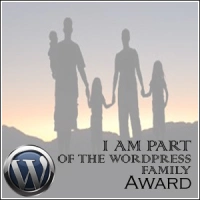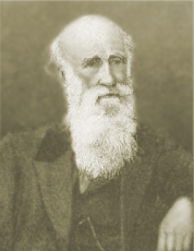Places without warrior grounds

Prime Minister Winston Churchill gives the “Victory” sign to crowds in London on Victory in Europe Day. (Photo credit: Wikipedia)
We may live in a place which has not been a battle ground for many years, but several individuals in that area may have their little wars of arguments and competing beliefs and claims about what is true. The industrial West has become more globalised, with people living together form different cultures and religions. In our world of varied religions and cultures which has been free of world wars for 70 years it may be called rare for a struggle to emerge that speaks to something universal about humanity. The Second World War did that.
No war is good
No man who shed blood or lost a brother would say that war is good. From the veterans of the many wars the West was involved the last 100 years none has brought peace in the hearts of those who went fighting. Most veterans do everything to forget it soon, but are often traumatised for their whole life. Many do say that the World War II was essential. For what we faced in Nazi totalitarianism was not just a battle of competing interests. It was a competing vision of humanity. Nazi ideology sought to subjugate, humiliate, and exterminate. It perpetrated murder on a massive scale, fuelled by a hatred of those who were deemed different and therefore inferior. The world was either to embrace a “world of selectivity” subcutaneous powered by evil, or was to erase the excesses of a haughty breed selection.
From 1936 Germany started turning over the human idea of building up a region where people could live together in peace and friendship. From 1939 the rope was around the neck of those who lived in freedom. The world became shocked but did not know half of what was really going on in Germany, Austria and other East-European countries. Western Europe had become a pressure cooker where friendships were broken by political reasoning. On both sides of the battlefield friendships could grow and looked the only way to survive this madness of bloodshed, where one could loose that fighting comrade at a finger click.
In the second world war many tried to be brave and selfless, doing things they would never thought to be able to do. At an hour of maximum danger, amid the bleakest of circumstances, men who thought themselves ordinary found it within themselves to do the extraordinary. They fought for their mothers and sweethearts back home, for the fellow warriors they came to know as brothers. And they fought out of a simple sense of duty – a duty sustained by the same ideals for which their countrymen had fought and bled for over two centuries.
Forgetting horrors of the century
Those who survived the horrors of the century tried to forget the bad events and the experiences they would never want their friends to have to face. Also those who went fighting as a professional soldier, in Iraq, Afghanistan, Yugoslavia or other places were well aware how important the camaraderie and friendship were.
Having no wars going on where such friendships could be sealed, some think lots of people are missing something. It is true that today lots of youngsters are totally taken by the materialism and egoism. Lots of people are not any more interested to stand ready to help the other. It is all for the ‘Self’.
Lack of camaraderie
This lack of camaraderie and lack of real friendship can be felt by many. even when living in crowded areas many do feel like they are on their own. Lots of people do feel lonely today.
In time of war many could feel how they needed each other to survive. Though they faced hardships and struggles they knew they were not the only ones who underwent it. They also they felt reassured that they had ‘guys’ around them who could assist them and help them move forward and could get them back on their legs when they would fall.
Swallowing fears
Today there are luckily enough still people who can arrive at that hour for which we were born, to draw strength from those moments in history when the best among us were somehow able to swallow their fears and secure a beachhead on an unforgiving shore. Others have no idea any more what it means to go together for the same coarse, fighting, be it literally or spiritually, to reach a better situation. Years ago there was no bond so strong in the entire world than the one between a mother and her child. Now many families are broken and children are pulled from one side to the other and do not know any more where to stand. Several parents are loosing interest in their own kids and their soul can not be healed any more by being with their children.
Today, lots of people have forgotten what Plato said:
“No man should bring children into the world who is unwilling to persevere to the end in their nature and education.”
The Other and Perseverance not in nomenclatur
Perseverance is a word which is not any more in the dictionary of many young adults. They do not want to know that they received the heaviest responsibility in their hands with those kids who have to become their future. Those who should become born out of love and should also be the greatest natural resource are often shuffled under the carpet. by doing that they forget that also the most closest friendship-relation is being undermined.
Most of the people today have lost their childlike hearts where there is the compulsion to know, to be peaceful, to love and to be joyful. When you walk on the streets of a city and look at the faces, you do not see many happy faces of faces which radiate a glow of contentment.
On Purple Rays the author quotes Vidwan and writes:
people need to access those Qualities by looking within & must prevent disappointments, negativity, anxiety, envy, fear, greed, hatred & lust to become the repetitive voices in their heads.
That stops those harmful impulses from penetrating their hearts and correspondingly impacting on their future experiences” {From Adam’s dream & on Revive your childlike nature!}
Able to do it on their own
Lots of people do think they can do everything on their own and that they do not need the others. shutting out the ‘other’, several of those ‘strebers’ or overachievers. The aim or hope to perform better or achieve a greater degree of success than expected by others, makes many want to step over them who are in their way at work to get promotion. Many are willing to go on corpses.
Thriving on personal expectations and ‘wants’
Today the battlefield has become work and ‘family’. But there, there is not such a camaraderie built any more as we could enjoy it in for example the sixties and seventies. Most people are now thriving on ‘wants’ instead of ‘giving.
They do not understand that to get the best out of life it is useful to put away the personal ego at regular times. It may well be that some may consider that ‘self’ as the nature basic element of the individual. I would agree that the self is in integral part of our being and that we therefore so often fall in the traps we lay in front of ourself. That selfishness is often also the cause of the many discords and issues in human relationships. You could even go so far by calling the selfishness the cancer of humanity. It is that mental disease which can turn love into hatred overnight.
Formed by camps
The Russians who had escaped the revolution in Russia told us how much better it was before the communists killed every sense of free enterprise. The Jewish survivors of the camps learned us to look at everything in perspective. My, by torture in the camps, physically totally deformed teacher of mime gave us true lessons of putting everything in perspective. It was amazing how this man was able to take laugh at and have us laugh with the whole system of humanity. Zwi Kanar was a master of laughter and marvellous mime artist. This teacher could bring us in the spell of watching intensely at his performances.
Gathered around and enjoying old stuff

A Victor V phonograph, circa 1907, with a bigger horn than we had in our house
We had grown up by enjoying turning the gramophone handle to get the 78 rpm disks turning and giving a sound which at the end went slower than normal sound, deforming the voices. This charm was soon taken away by the pick-ups and vinyl LP and EP records, soon followed by the tape recorders which made life so much easier to do interviews and to share some songs or messages with friends.
 After we got pulled away from the wooden ‘wireless‘ (Radio) by the first ‘looking cupboard’ or ‘show box‘ the television enchanted the whole world. It got people back together in the cafés and snack bars, where they all come to enjoy the ‘world brought at their feet’. (I living in a prosperous family could watch the television at home.) Quickly it brought in the first discussions of what could be seen and even dictated changes in feeding and praying patterns. slowly but dangerously unnoticed it entered words and stories in the house friends would never been allowed to enter in the living room.
After we got pulled away from the wooden ‘wireless‘ (Radio) by the first ‘looking cupboard’ or ‘show box‘ the television enchanted the whole world. It got people back together in the cafés and snack bars, where they all come to enjoy the ‘world brought at their feet’. (I living in a prosperous family could watch the television at home.) Quickly it brought in the first discussions of what could be seen and even dictated changes in feeding and praying patterns. slowly but dangerously unnoticed it entered words and stories in the house friends would never been allowed to enter in the living room.

A family watching TV, 1958
Volatile period of civil unrest

Iconic photo of a female demonstrator offering a flower to a Military Police officer during an anti-war protest, 10/21/1967.
We had been stuffed our ears with stories of friendships, smuggling, intrigue, hiding people and lots of adventures in the world wars I and II. Now fictitious came to our ears to make many people dream of all other things. Far away wars soon were brought at the doorstep. They still could get us annoyed. So, soon we were marching on the streets and making songs and cabaret acts against the war in Vietnam. It looked as if we had found a bond with many around the world against the violence humans could do against the other. Soon we were on the barricades against the bureaucratic system. There had come again a volatile period of civil unrest punctuated by demonstrations and massive general strikes as well as the occupation of universities and factories across several countries. Several of the contestants did not so much like the violence and refused to turn over cars , putting on things in fire, etc.. I also opposed the violence with actions but did not resist the ‘violence with words and artistic acts. Feeling united in spirit many of us gave the protest an artistic and festive aspect with numerous quasi-improvised debates and assemblies, songs, imaginative graffiti, posters and slogans. University administrators, gendarmerie and police were the scapegoat. Strangely enough violence evaporated almost as quickly as it arose and a few years later we got to see some of the people who were shouting hardest against the establishment had become themselves part of the establishment and having the seats assured in parliament. We sincerely felt betrayed and for me this triggered a total change in my mind which now wanted to even hold faster on the idea of the ‘gnome’ and ‘hippie movement‘. The Kabouters (Gnomes) were people who felt that our connection with each-other and with nature was the basic of a good working society. It was the beginning of the green movement which also betrayed itself after a few years, when they also got some seats in parliament.

Millions of Ethnic Germans in Eastern Europe were killed or deported after the war. (Photo credit: Wikipedia)
+
Preceding posts:
Friendship and Offer for the cause of democracy
Invasion of Normandy a day never to forget
Blood soaking the water at democracy’s beachhead
Next:
Subcutaneous power for humanity 2 1950-2010 Post war generations
Subcutaneous power for humanity 3 Facing changing attitudes
Subcutaneous power for humanity 4 Not crossing borders of friendship
Subcutaneous power for humanity 5 Loneliness, Virtual and real friends
In reply to:

The world need peace and each one of us can contribute to it, making the right people friends. – Click on picture to become connected with Bloggers for peace
++
Please do find additional reading:
- Leaving the Old World to find better pastures
- 2nd Half 20th Century Generations pressure to achieve
- Facing disaster fatigue
- Alternative four letter words
- Cancer and Life Lessons
- Men as God
- How we think shows through in how we act
- Christian the Lion
- Reflection for today: hating your brother
- The Greatest of These is Love
- Love envieth not
- You’re so used to
- God, my father, my closest friend
++
Of interest From other websites
- The Brotherhood of Combat
- Young Australians spend more time speaking to their friends on social media than in person
- A Beautiful World
- Revive your childlike nature!
- Profound Love Quotes #1
- Profound Love Quotes #2……The best kind of love!
- Profound Love Quote #9…..Tones of true love!
- You are Loved
+++
Related articles
- Book Review: A Spy Among Friends (dnaindia.com)
It’s been more than a quarter of a century since he died, and nearly 50 years since the events of which he was prime mover, or villain, depending on how you see it. Even the Cold War, that dangerous game of one-upmanship that the Soviets and America played through the 1950s and 1960s, threatening to tip the globe into nuclear conflagration, is a fading memory now. But the mystique of Kim Philby lives on — the thickening pile of books on him and his friends, dubbed the Cambridge Spy Circle, an indication of his continuing hold on the popular imagination.
+
A Spy Among Friends is also a book about Philby’s close friendship with Nicholas Elliott, his fellow officer from MI6 whose career rivalled his own in brilliance — until his defection, that is. Macintyre traces the trajectories of Philby and Elliott’s careers, — apparently running parallel but actually divergent, and describes the camaraderie and bonhomie, the drinking binges and the family parties to underline just how deep the underlying betrayal was. - Nadja Tesich (workers.org)
From the beginning days of the International Action Center, Nadja was part of IAC life. She had fought against U.S. wars in Vietnam, coups in Congo, Chile and Greece; she was active in the mass demonstrations against the Iraq War in 1991 and again in 2003. - Father Fabian Flynn, Omaha Beach on D-Day (usreligion.blogspot.com)
Despite the fact that the soldiers of the First Infantry Division fought at the front lines throughout the Second World War, June 6, 1944 was perhaps their most difficult day. Due to the facts that an Allied bombing run completely missed the German positions the night before the invasion and that the German defenders were conducting a training assignment with live ammunition when the American soldiers arrived, the soldiers of the First Infantry Division encountered, in the words of one of their Catholic chaplains, Father Fabian Flynn, “Hell let loose!”One might ask what kind of religious experience could exist on a beach filled with dead American soldiers, the survivors clinging to life with what little shelter they could find, as increasingly desperate German defenders rained down machine gun fire and artillery on top of them. Yet looking after the spiritual life of the soldiers under fire was the task of the various Jewish, Protestant, and Catholic Army chaplains on the beaches of Normandy. One of these men was Fabian Flynn, a member of the Roman Catholic order of the Passionists, who had been with the First Infantry Division (or more specifically, the 26th Infantry Regiment, which comprised a substantial part of the Big Red One) since the summer of 1943. By his own admission, Flynn gave last rites to many of the dead while German fire echoed over him and tried to provide spiritual comfort to those who feared the end had come. This duty continued throughout the next sixty four hours until the First Infantry Division could establish a narrow beachhead. - D-Day: How the ‘Special Relationship’ Between America and Britain Saved the Free World (breitbart.com)
While British in nationality and manner, Churchill was half American by blood. His mother was from New York and possibly had some distant American Indian relatives, most likely Iroquois. It was Churchill, in the darkest days of WWII, who fought to bring the “Great Republic” from across the sea into the war.This relationship between the two countries was a historical aberration at the time as no nation posed a greater threat to American liberty and independence in the eighteenth and nineteenth centuries than Great Britain. But after the war of 1812, and a few dust ups along the US-Canadian border in the mid-nineteenth century, hostility between the nations cooled down. Perhaps most importantly, the British began to respect American power. - Holocaust survivors stand against rising fascism (mobile.wnd.com)
In the 1940s, while much of the world was asleep to the horrors of Adolf Hitler’s Holocaust, a few, courageous souls persevered Nazi tyranny, fought back against fascism and survived to tell the tale.Today, these same souls are bringing their stories to the silver screen in a pair of riveting films documenting their fight and their flight, lest the world should again stay asleep while tyranny rises.
+Climaxing in the true, breath-taking rescue of an entire orphanage of Jewish children marked for mass execution by Hitler’s assassins, Poley’s “Return to the Hiding Place” has now been made into an inspiring and award-winning film of the same name.“Return to the Hiding Place” opens this weekend in select cities and stars John Rhys-Davies (“Indiana Jones,” “Lord of the Rings”), Craig Robert Young (“NCIS: LA,” “Hawaii Five-O”) and Mimi Sagadin (“The Dilemma”), among others. Based on the true story taken from Poley’s autobiographical book, the movie highlights themes of endurance, perseverance and faith through Poley’s experiences as a student resistance fighter during the Holocaust in World War II.
“‘Return to the Hiding Place’ depicts a great story with real historical characters brought to life in a stunning account of self-sacrifice for the greater good,” says director Peter Spencer. “It captures a moment in time that will impact society for generations to come.”
- On D-Day: Remembering the Muslim Troops who Fought the Axis (juancole.com)
One of the frustrations for a world historian is the unyieldingly parochial vision of the North Atlantic common among journalists and even many historians, and consequently among the public. The 17 world leaders gathering for the D-Day commemoration should by all rights include Pakistani Prime Minister Nawaz Sharif, Indian Prime Minister Narendra Modi, and Senegalese President Macky Sall, among others from countries whose troops fought the Axis on European soil even if they weren’t part of this landing. They in many ways made it possible by their exploits in North Africa, Italy and southern France. - Solitude: What It Takes to Complete Work and Complete You (space2live.net)
I feel I’ve come full circle from January 2012 when I was newly single and aching for personal expression and independence. I had an aliveness that vibrated subcutaneously, poised to spill out from my smile. I wanted to take classes, write, read, travel, nurture friendships, figure out Brenda, be seen as Brenda.
personal expression and independence. I had an aliveness that vibrated subcutaneously, poised to spill out from my smile. I wanted to take classes, write, read, travel, nurture friendships, figure out Brenda, be seen as Brenda.
+
Alone is a drug I have to have. It’s where I gain perspective, clarity and proper verbiage for my ideas. It’s where I sew together bits of ideals, possibilities and aha! shower moments with a thread of practicality. It’s where I complete things, including myself. - “Take this feeble mind And mold it into something better And help me realize that I won’t live forever…” (therealkk.wordpress.com)
Finding a best friend is so hard, and then having them just walk away is even worse. Tonight I’m having a hard time not dwelling on things I can’t change, but my struggles can be helpful for someone else. - Friendship through the eyes of Sir Patrick Stewart and Sir Ian McKellen (splitid.wordpress.com)
“The surprising way friends make us who we are.” And as I’m reading it, I’m surprised we’d be surprised. We all have a hope that our friends help us shape ourselves to who we want to be. But she’s right. It is surprising how much our friends affect our growth. - D-Day veterans revered, celebrated by French they helped liberate (stripes.com)
“People would come up and thank you for their liberty, and of course we didn’t feel that we really deserved that,” Jean said. “But they invite you to their homes, they become your friends. It’s just like a second home to us, really.”






























 Biblestudents – Bijbelstudenten
Biblestudents – Bijbelstudenten 0 + Bloggers for Peace
0 + Bloggers for Peace Free Christadelphian Ecclesia
Free Christadelphian Ecclesia Hoop tot Leven – Redding in Christus
Hoop tot Leven – Redding in Christus Vrije Broeders in Christus (Free Flemish Christadelphians on Wordpress)
Vrije Broeders in Christus (Free Flemish Christadelphians on Wordpress)















Pingback: Subcutaneous power for humanity 2 1950-2010 Post war generations | Marcus' s Space
Pingback: Subcutaneous power for humanity 3 Facing changing attitudes | Marcus' s Space
Pingback: Subcutaneous power for humanity 4 Not crossing borders of friendship | Marcus' s Space
Pingback: Subcutaneous power for humanity 5 Loneliness, Virtual and real friends | Marcus' s Space
Pingback: Not true or True Catholicism and True Islam | Marcus' s Space
Pingback: Illusion of Separateness | From guestwriters
Pingback: Jewish millennials between 2013 and 2017 – Jeshua-ists
Pingback: 75th anniversary of the liberation of Auschwitz – Immanuel Verbondskind – עמנואל קאָווענאַנט קינד
Pingback: A human drama set in Afghanistan | Marcus Ampe's Space
Pingback: Faithful Are the Wounds of a Friend | Broeders in Christus
Pingback: Living in this world and viewing it – Some View on the World
Pingback: A culture of “democratic cleansing” – Elders and youngsters versus respect | From guestwriters
Pingback: A precious job doing for free | Marcus Ampe's Space
Pingback: What to change about modern society | From guestwriters